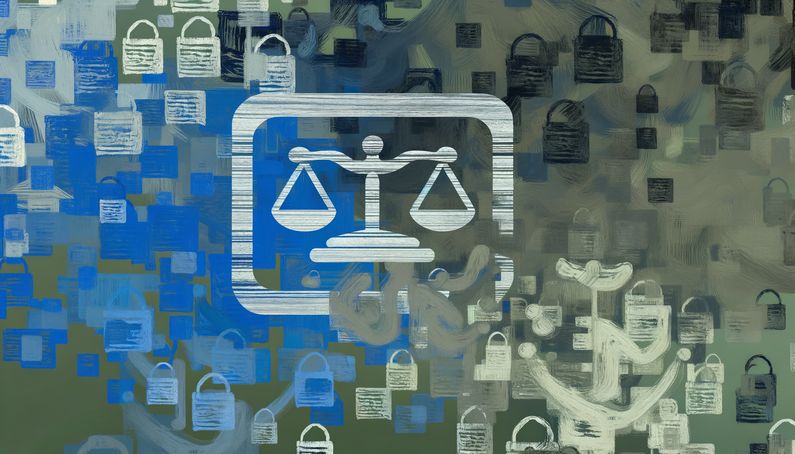
Telegram's Privacy Shift: Navigating Legal Challenges and User Trust
Telegram, a platform renowned for its commitment to user privacy, finds itself at a crossroads as its CEO, Pavel Durov, temporarily leaves France amid a criminal investigation. The platform’s dedication to privacy has often clashed with regulatory demands, particularly in the European Union, where the General Data Protection Regulation (GDPR) sets stringent standards for data protection. This tension has culminated in legal challenges, as French authorities scrutinize Telegram’s role in facilitating illegal activities such as fraud and drug trafficking (Bleeping Computer). In response, Telegram has made a significant shift in its privacy policy, agreeing to share user data with authorities under valid legal requests, a move that marks a departure from its historically stringent privacy stance (Gout and Design).
Telegram’s Legal Challenges and Privacy Dilemma
Regulatory Scrutiny and Legal Challenges
Telegram has faced significant regulatory scrutiny, particularly in the European Union (EU), where the General Data Protection Regulation (GDPR) imposes strict requirements on data privacy and protection. The platform’s commitment to user privacy has often been at odds with these regulations, leading to legal challenges. The arrest of Telegram CEO Pavel Durov in France highlights the ongoing tension between Telegram’s privacy policies and regulatory demands. French authorities have been investigating Telegram’s role in facilitating illegal activities, such as fraud and drug trafficking, which has intensified the focus on the platform’s moderation practices (Bleeping Computer).
Privacy Policy Shift
In response to mounting legal pressure, Telegram announced a significant shift in its privacy policy. The platform now agrees to share user data, including IP addresses and phone numbers, with authorities under valid legal requests. This change marks a departure from Telegram’s historically stringent stance on user privacy, which prioritized anonymity and data protection. The decision reflects Telegram’s attempt to balance its commitment to user privacy with the need for accountability in an evolving digital landscape (Gout and Design).
Impact on User Trust and Platform Integrity
Telegram’s decision to share user data with law enforcement has sparked a debate about the platform’s reputation as a privacy-first service. Users who valued Telegram for its strong encryption and resistance to government control may now question the platform’s commitment to privacy. This shift could potentially impact user trust and the platform’s integrity, as Telegram navigates the challenges of balancing privacy with security (FireXCore).
Global Compliance and Legal Obligations
Telegram’s privacy policy update is a proactive step towards complying with global laws and avoiding further legal actions. The platform’s ability to adhere to local laws in jurisdictions like the EU is crucial, as governments and regulatory bodies increasingly scrutinize encrypted communication platforms for their potential to facilitate illegal activities. Telegram’s compliance with international data protection laws is essential to maintaining its operations and reputation worldwide (PublicLawLibrary.org).
Future of Privacy in the Digital Age
The changes in Telegram’s privacy policy raise important questions about the future of privacy in the digital age. As platforms once dedicated to user privacy begin to bend to government demands, the broader trend of balancing privacy with legal compliance becomes evident. Telegram’s case could set a precedent for other tech companies, emphasizing the importance of compliance with international data protection laws while navigating the challenges of maintaining user privacy (LeapXpert).
Emerging Technologies and Privacy
As we look to the future, emerging technologies like artificial intelligence (AI) and the Internet of Things (IoT) could further complicate the privacy landscape. These technologies have the potential to collect vast amounts of data, making it even more challenging for platforms like Telegram to maintain user privacy while complying with legal obligations. The integration of AI in data analysis could help identify illegal activities more efficiently, but it also raises concerns about surveillance and data misuse.
Final Thoughts
Telegram’s recent policy changes highlight the complex balance between privacy and compliance in the digital age. As the platform navigates these challenges, it faces the risk of eroding user trust, particularly among those who valued its strong encryption and resistance to government oversight (FireXCore). However, these changes are also a proactive step towards global compliance, essential for maintaining operations and reputation in an increasingly scrutinized digital landscape (PublicLawLibrary.org). Telegram’s situation underscores a broader trend where tech companies must balance privacy with legal obligations, potentially setting a precedent for others in the industry (LeapXpert).
References
- Bleeping Computer. (2024). Telegram CEO leaves France temporarily as criminal probe continues. https://www.bleepingcomputer.com/news/security/telegram-ceo-leaves-france-temporarily-as-criminal-probe-continues/
- Gout and Design. (2024). Telegram’s privacy policy shift: A new era of transparency and accountability. https://goutanddesign.com/wpress/2024/10/telegrams-privacy-policy-shift-a-new-era-of-transparency-and-accountability/
- FireXCore. (2024). Telegram privacy update. https://firexcore.com/blog/telegram-privacy-update/
- PublicLawLibrary.org. (2024). Telegram faces legal scrutiny in EU: What led to charges against its founder in France. https://publiclawlibrary.org/telegram-faces-legal-scrutiny-in-eu-what-led-to-charges-against-its-founder-in-france/
- LeapXpert. (2024). Navigating Telegram’s current regulatory compliance landscape after CEO’s arrest. https://www.leapxpert.com/navigating-telegrams-current-regulatory-compliance-landscape-after-ceos-arrest/



